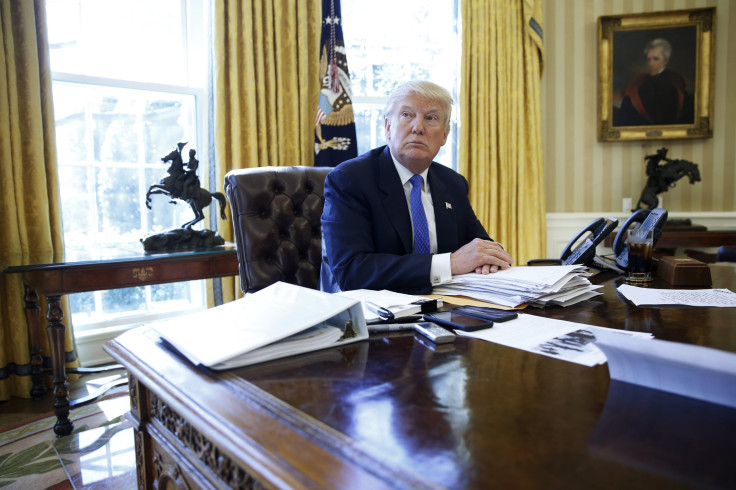Border Tax Update: Trump Says Imposing Taxes On Imports Would Create American Jobs

President Donald Trump changed his tune Thursday on a potential border-adjustment tax supported by Republicans in Congress. Despite the president’s contrasting statements about the tax in the past, he said this week the tax could “lead to a lot more jobs in the U.S.”
A border adjustment tax, which was included in the Republicans’ tax reform package, would impose a tax on goods coming into the U.S., but exports — goods made in America but sold in foreign countries — would not be taxed. Republicans hoped the tax would convince U.S. businesses keep factories and, as a result, manufacturing jobs inside the country.
In January, Trump told the Wall Street Journal, "Anytime I hear border adjustment, I don't love it. Because usually it means we're going to get adjusted into a bad deal."
But Trump hasn’t always been hostile to the idea of a border tax, especially regarding goods from Mexico. In the week after the inauguration, White House Spokesman Sean Spicer floated the idea of imposing a 20 percent tax on Mexican products coming into the U.S. as a way to pay for Trump’s proposed wall along the Mexico-U.S. border. But critics pointed out that this would mean American citizens would, essentially, be paying for the wall by paying higher taxes, and that proposal was quickly walked back.
Republicans in Congress have also faced objections about their plan for a border adjustment tax from critics who say the tax would make prices spike for American consumers. Among those critics was the group Americans for Affordable Products, a coalition of business giants including Walmart, Macy’s, Best Buy and Gap.
"It will force consumers to pay as much as 20 percent more for the products they need. Gasoline is estimated to go up as much as 35 cents a gallon," Brian Dodge, an advisor for the coalition, told CNBC earlier in February. "Common household goods, apparel, things that people count on every day, pajamas, will cost more and really just so a certain, select group of corporations can avoid paying taxes forever ... We think that's bad policy.”
© Copyright IBTimes 2024. All rights reserved.






















